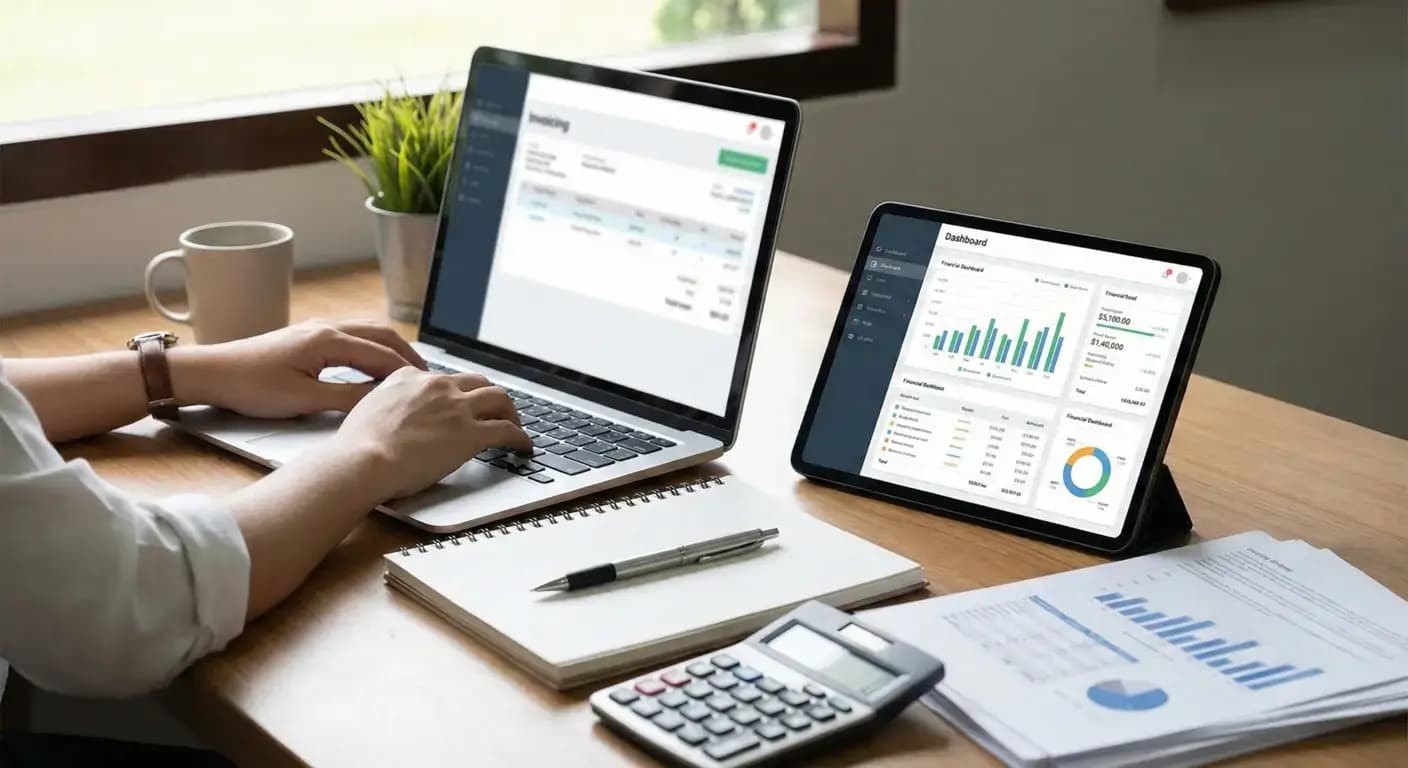
Managing Unpaid Invoices: How To Proceed
Managing unpaid invoices as a freelancer: contracts, reminders, formal notices and solutions to secure your payments and protect your cash flow.

Wage portage is an increasingly popular solution for independent professionals to enjoy the benefits of employment while retaining the freedom of a freelancer. However, this hybrid status raises specific tax questions, particularly concerning VAT. Understanding how VAT works in wage portage is essential for managing your business effectively and ensuring the tax compliance of your projects. In this article, we will explore the main aspects of VAT in wage portage, from invoicing to reporting obligations, to provide you with a clear and practical overview.
Wage portage is a hybrid status that combines the advantages of employment and entrepreneurship. As a freelance contractor, the professional performs services for clients while benefiting from the security of employee status.
Under this status, the consultant signs an employment contract with an umbrella company. This company acts as an intermediary, invoicing the clients for the services rendered and then paying the contractor's remuneration. The umbrella company also handles administrative management, tax declarations, and the payment of social contributions.
One of the main advantages of wage portage is social security. Freelance contractors enjoy the same rights as regular employees, including health insurance, retirement benefits, paid leave, and unemployment insurance. Additionally, they can access professional training to improve their skills and expand their service offerings.
In terms of remuneration, the revenue invoiced to clients is subject to various deductions. The umbrella company's management fees are deducted first, followed by social contributions. The net amount remaining constitutes the contractor's gross salary, which will then be subject to income tax.
For client companies, working with freelance contractors allows them to benefit from flexible services without the administrative constraints of hiring permanent staff. Wage portage thus offers an advantageous solution both for professionals seeking flexibility and for companies wishing to outsource certain tasks.
VAT, or Value Added Tax, is an indirect tax on consumption that applies to most goods and services. It is collected by businesses when they sell their products or services and then paid to the government. The VAT rate varies depending on the goods or services provided.
In wage portage, the freelancer is automatically subject to VAT, unlike micro-entrepreneurs who are exempt from VAT up to a certain revenue threshold.
For micro-entrepreneurs, VAT becomes applicable from 34,400 euros in revenue for the previous two years, and 36,500 euros for the current year.
For freelance contractors, VAT management is simplified by the umbrella company. When a freelance contractor performs a service for a client, it is the umbrella company that invoices the client, including VAT. The umbrella company then collects the VAT and pays it to the tax authorities. Thus, the freelance contractor does not have to worry about the formalities related to VAT collection and payment. However, there are cases of VAT exemption provided by law.
In wage portage, the VAT rate applied is 20%, the same as for any other service provision. This rate is imposed on the services provided by consultants or freelancers under the freelance contractor status. For the client company, the invoiced VAT has no direct financial impact since it can be recovered when making its VAT declaration. Thus, the actual cost of the service is the amount excluding taxes (HT) paid by the company.
It should be noted that in wage portage, consultants cannot work with individuals or associations. In these cases, the question of VAT does not arise.
Since VAT management in wage portage is entirely handled by the umbrella company, the freelance contractor does not have to worry about the administrative and tax formalities related to VAT. When negotiating their remuneration, however, the freelance contractor should consider the amount excluding taxes of their fees, as VAT will be added when invoicing the client by the umbrella company.
Certain situations allow for VAT exemption in wage portage.
Here are three specific cases where VAT can be exempted:
Note: In the event of VAT exemption, the freelance contractor is subject to payroll tax, which leads to a decrease in their net remuneration. Thus, although VAT exemption can be advantageous for the client company, it may be less beneficial for the freelance contractor.
Understanding the mechanisms of VAT in wage portage is essential for optimizing your professional activity. By choosing an umbrella company like Weepo, you benefit from comprehensive and transparent support, with simplified VAT management and all administrative formalities. Weepo ensures that you can focus on your tasks with peace of mind, while guaranteeing ethical management with no hidden fees.


Managing unpaid invoices as a freelancer: contracts, reminders, formal notices and solutions to secure your payments and protect your cash flow.

A comprehensive comparison to help you choose the best freelance accounting software based on your status, needs, and budget—with reviews and a clear comparison table.

Mandatory mentions, steps, templates, and tools: learn how to create a compliant and professional freelance invoice to secure your business.